On the 6th of September 2018, my mother was diagnosed with triple-negative breast cancer. In March 2020, at the age of 23, following some tests, I discovered that I carry the BRCA 1 gene mutation. My mum lost her fight in 2022. My family moved back to our home country (Montenegro) that same year, while I remained in Brussels with my boyfriend, 2 years later, at the age of 25, when the statistical chance of developing breast cancer reaches close to 85%, I had a double mastectomy.
I moved with my family to Belgium in 2016, 2 years later we found out that my mum had breast cancer and we discovered that it was of genetic nature. By being in a country where she didn’t speak the language, us as a family (my dad, brother, sister and I) were accompanying my mum to doctoral appointments, chemotherapy sessions, and all sort of hospital visits as we spoke English. While I still can’t imagine the horror and pain of having breast cancer, and what my mum had to go through, I saw a glimpse of what it can do, both physically and mentally to a person.
Once the geneticist informed us that there was a chance that my siblings or I inherited the gene, we did some tests and a few months later the results showed that I had inherited it. At the time, I promised myself to do whatever I could to lower the chances of experiencing what my mum was going through. So, when I spoke to my mum’s oncologist and she explained the risks and the statistics related to the BRCA 1 gene, it was decided that I would have screenings every six months of both, my breasts and ovaries. We also established that having a double mastectomy would give me the biggest chance of avoiding developing breast cancer myself. Making the decision is an individual experience and depends on many personal factors, but seeing the pain and horror breast cancer can put a person through, I was very decisive and believed in my decision to go through with a double mastectomy. Five months after my 25th birthday, just over a year after losing my mother, I underwent the first operation. After a tough summer, I had the second operation in September. This one was easier because the implants were much softer than the tissue expanders and I felt like I had done the hardest part: removing a part of me.
We have always been a very tight-knit family, we are like a fortress, protecting and supporting each other. So having them on my side made it easier to take the decision to have the operation. I’m not sure I would have been so resolute to go through with the mastectomy if I didn’t have my dad, brother, sister and my boyfriend giving me strength and courage. Also, I cannot stress enough the importance of having a good relationship with your physiotherapist because trust me you see them A LOT and you need them. In this sense Ingrid de Biourge, has been amazing for me as I look forward to every session with her. Also, she is the only one who has the patience to listen and answer all my questions, and believe me I have a lot of them.
To my dad, who was detangling and braiding my curly hair, my brother who was helping me dress, my boyfriend who was running around town making sure I had everything I needed and making me laugh, to my sister who was calling a million times a day just to make sure that everything is alright, to my mum who… well, I needed the most to be there … Thank you for making this journey easier and for being the biggest support ever!
Finally, during her fight with cancer, my mum was often in pain and when we ran out of comforting things to say, we started to (illogically) normalize the pain by saying things like “it’s normal that you’re in pain, you just received chemo”. Following my operation, the pain I felt probably wasn’t close to what maki experienced. But receiving comments from my boyfriend saying “it’s normal you’re in pain, your breasts were litterally removed” just made me feel worse and really didn’t help. So please don’t normalize pain, don’t try to explain it, just acknowledge it. I certainly wish I could have supported her better and be less dismissive of her pain, because other than mentioning it from time to time, she never complained or let us see the pain she was in, she was the strongest person I ever met and I did not acknowledge it enough.
By losing my best friend, the funniest and most caring person in my world, the one that was my safe place – my mum, I gave her my word that I would do my best to speak about breast cancer, to try to raise awareness among people, that there are chances and possibilities to prevent having it. So, if at least one person were to read this small story of mine and start doing regular tests, screenings and check-ups, and change the way they see and treat cancer patients, that would already be a small comfort in my revalidation.
 BRCA network asbl/vzw
BRCA network asbl/vzw
N. entreprise: 1005.236.635
Avenue de la Métrologie 10/B1, 1030 Brussels
Disclaimer: the information provided on this website should not be interpreted as medical advice. All health information should be discussed with your health care provider. Please read our full disclaimer for more information.